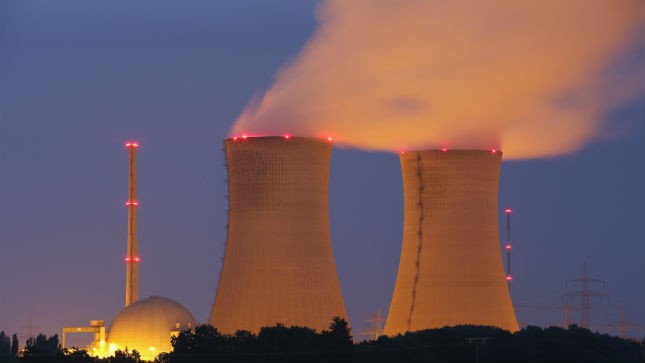First clean energy power plant goes on line in decades
 |
| First new nuclear power plant in USA in decades. Total pollution it will emit for next 100 years = zero |
The United States' first new nuclear generator in 20 years has entered commercial operation in Tennessee reports Devin Henry of The Hill.
The Tennessee Valley Authority's 1,150-megawatt Watts Bar 2 reactor is officially online and producing electricity for to 650,000 homes and businesses, the company announced Wednesday.
Watts Bar 2 is the 100th nuclear reactor to operate in the United States, according to the Nuclear Energy Institute, and the first new reactor to open in 20 years.
The reactor formally connected to the grid in June, but the Tennessee Valley Authority (TVA) said Wednesday that it underwent testing and a slow ratcheting up of power before today.
With Watts Bar 2, the TVA has six nuclear units across its fleet.
 |
| Nuclear Power + electric cars = pollution free environment. Could humans someday live cancer-free to 150? We would need to replace all cancer-causing fossil fuel burning plants with nuclear and other clean energy alternatives |
"TVA's mission is to make life better in the valley by providing reliable, low-cost energy, protecting our area's natural resources and working to attract business and growth – all priorities simultaneously supported by the completion of Watts Bar Unit 2," TVA President and CEO Bill Johnson said in a statement.
"Watts Bar Unit 2 is a key part of our commitment to produce cleaner energy without sacrificing the reliability and low cost that draws both industry and residents to our area."
The reactor is decades in the making.
Construction on the reactor began in 1973 but was put on hold in 1985. Officials restarted work on the project in 2007, and it was finally completed last year at a cost of $4.7 billion. It is the first reactor to meet stronger standards approved by the Nuclear Regulatory Commission after the Fukashima disaster in Japan in 2011.
Four other nuclear reactors are under construction in the United States, and the federal Energy Information Administration expects them to go online within the next four years. Devin Henry/The Hill
